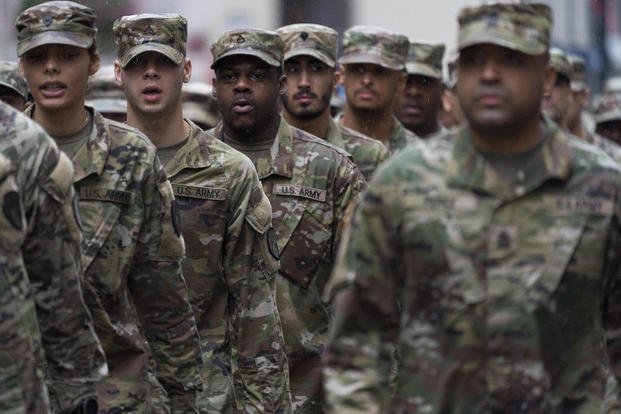A key House panel has for the first time advanced a bill that would dramatically expand benefits for veterans injured in combat.
In a voice vote Wednesday, the House Armed Services Committee approved the Major Richard Star Act, which would ensure service members who medically retire before 20 years have full access to both military retirement pay and Department of Veterans Affairs disability benefits.
"This bill gets at a big injustice facing many of our veterans," Chairman Mike Rogers, R-Ala., said at Wednesday's committee meeting.
Read Next: Army Ranger Arrested After 2 Killed in Shooting at Music Festival in Washington State
Right now, veterans with fewer than 20 years of service and a disability rating of less than 50% have their retirement pay reduced by a dollar for every dollar of disability pay they get.
Those rules mean an estimated 50,000 retirees are ineligible for concurrent benefits. The average offset was about $1,900 per month in 2022, according to the Congressional Budget Office.
The Major Richard Star Act, which is named after an Iraq and Afghanistan veteran who died in 2021 from cancer he developed after burn pit exposure, would remove those restrictions so that all retirees with combat-related disabilities can collect their full retirement and disability benefits.
The bill has been a major priority for veterans service organizations, and Senate Veterans Affairs Committee Chairman Jon Tester, D-Mont., identified it as one of his top priorities this year. The legislation has also garnered broad bipartisan support, with 325 co-sponsors in the House and 68 in the Senate.
Despite the strong bipartisan support, the bill has in the past struggled to advance, in part over questions about how it would be paid for. Additionally, last year, getting the sweeping toxic exposure bill known as the PACT Act over the finish line took precedence over the Major Richard Star Act.
The Congressional Budget Office has estimated the legislation could cost an estimated $9.75 billion in what's known as mandatory spending over the next decade.
Despite Wednesday's breezy passage through the House Armed Services Committee, questions about how to pay for the bill remain, making its path to final passage unclear. Under House rules, increases to mandatory spending must be offset.
"Although I support this bill, I am disappointed the committee is being forced to act on it before a pay-for could be found. Moving a bill forward with mandatory spending that isn't fully offset opens the bill up to a point of order against its consideration on the floor," Rogers said. "Nevertheless, we will work with leadership and the VA committee to see if an offset can be found for this bill."
Still, supporters cheered that the bill had inched forward.
"The brave men and women who return from serving our country should be able to receive the benefits promised to them," Rep. Gus Bilirakis, R-Fla., the lead sponsor of the measure in the House, said in a statement after the committee scheduled its vote on his bill. "Military retirement pay and service-connected disability compensation are two completely different benefits. One does not diminish the merits of the other."
-- Rebecca Kheel can be reached at rebecca.kheel@military.com. Follow her on Twitter @reporterkheel.
Related: All Combat-Injured Vets Would Keep Their Full Retirement, Disability Pay Under Proposal













